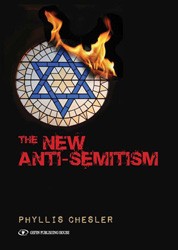This memoir by a prominent activist and feminist tells the story of a young Jewish American woman who marries an Afghani foreign student and goes to live with him in his family’s compound in Kabul, Afghanistan. Chesler meets her husband in the early 1960s, when she is a college student and a romantic, enthralled with the possibilities of an exotic life. But life in Kabul is not romantic. Almost immediately, she encounters the challenges of living as a part of her husband’s Muslim family. She struggles to understand her place and get along with the women of the household, including the wives of her father-in-law. She grapples with the lack of freedom for women, from the loss of her passport — confiscated at the airport — to the societal customs that restrict her ability to explore the city outside the walls of the home where she lives. Indeed, the food almost kills her, and her home country nearly refuses to take her back.
But Chesler also learns the meaning of friendship and the necessity of persistence. She finds the strength to escape and — more importantly, after a lifetime of reflection — the understanding to process her experience and to communicate to her readers what that experience represents for her and what we might learn from her adventure. In this regard, the sections on the history of Afghanistan and the history of Jews in Afghanistan are particularly interesting. Chesler writes about this history in light of modern events and the recent and enduring American military presence in Afghanistan. This approach rightly provides context, and readers will enjoy the opportunity to learn about the region through such a personally compelling and eye-opening account. Bibliography, index, preface.




